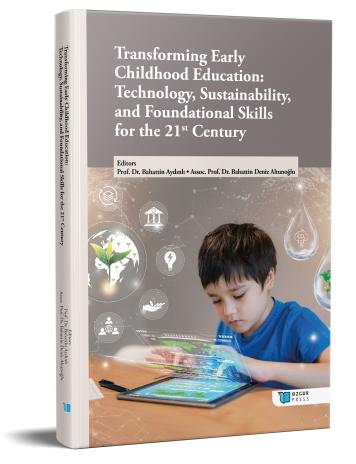
Nature-based Learning in Early Childhood Education
Chapter from the book:
Aydınlı,
B.
&
Altunoğlu,
B.
D.
(eds.)
2024.
Transforming Early Childhood Education: Technology, Sustainability, and Foundational Skills for the 21st Century .
Synopsis
The nature-based learning approach involves the direct integration of nature into learning processes and the facilitation of firsthand nature experiences. Considering the benefits it provides across a wide range of areas, including social development, cognitive development, emotional development, motor skills, and health, it becomes evident that the integration of this approach into early childhood, a critical period for individual development, is significant. In this context, this study primarily examines the nature-based learning approach from a theoretical framework perspective. At this point, Bronfenbrenner's bioecological theory, experiential learning theory and place-based learning theory, which are noted in the literature as having an impact on the nature-based learning approach, are mentioned. Furthermore, the implementations of nature-based learning during early childhood and the underlying approaches supporting these implementations are examined in general terms. This study aims to highlight the diversity of educational models that provide nature-based learning experiences through nature-integrated learning environments offered by various approaches, including Kindergarten, Montessori, Waldorf, Reggio Emilia, and forest schools.

